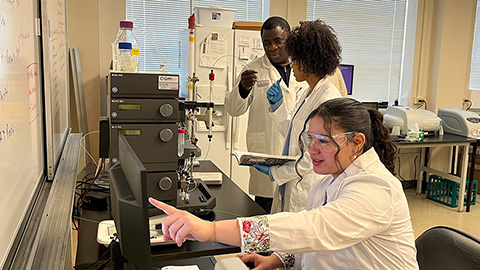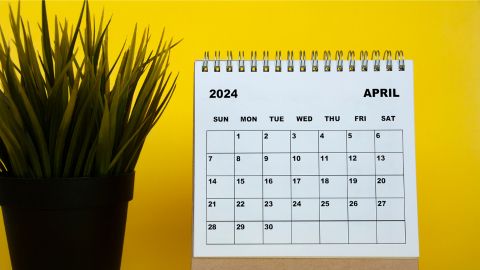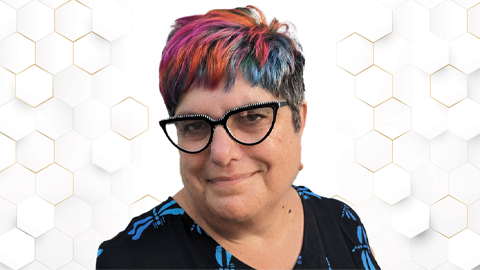Great graduate school applications: what program directors look for
It’s my junior year. I’ve done all of the tedious, general laboratory classes and taken all the foundational math and physics courses, and I’ve begun to hunger for more of a challenge, some way that I can apply these topics beyond textbooks and show my love for research: graduate school. But the graduate-school application process can be overwhelming for those of us balancing classes, extracurricular activities and interpersonal relationships, so I decided to go straight to the source to find out how to go about it: the professors who make up the admissions committees at the top research universities in the nation.
My quest to shed light on the enigma that is the application process of Ph.D. and M.D./Ph.D. degree programs was set. The questions I needed to have answered: How the heck do I write a CV? What are the important pieces that make up the application of a worthy Ph.D. or M.D./Ph.D. candidate at a top-notch research university? How is each of those pieces weighed?
.jpg)
The curriculum vitæ
One of my biggest concerns going into scientific research was the state of my curriculum vitae. I had no point of reference for how to write one, so surely this would be the weakest part of my application. Luckily, Robert Simoni, director of Stanford University’s biology Ph.D. program, soothed my fears, explaining that the CV does not hold much importance, “but that is not to say that accomplishments as an undergraduate are not important, as they, of course, are. It is that [these accomplishments] are covered in other parts of the application.”
Phew! So no sleepless nights would be spent wondering whether I had the correct citation style on my publications or if the dates on my CV had to go in descending or ascending order. However, the general consensus of the directors I asked was that this part of the application should be well organized and concise, with Simoni emphasizing the importance of being judicious about what you should include. “Don’t include papers in preparation or submitted,” he said. “Only include papers that have been published or are in press.”
Gradually, however, the question of what limits I should set on my CV arose. Simoni said that most scientists have two CVs: a short, National Institutes of Health-style one and a full version.
Should I mention any merits I gained in high school? The opinions on this varied. Simoni said he found high school accomplishments “quite appropriate,” while Ronald Koening, director of University of Michigan’s M.D./Ph.D. program, said accomplishments that are “college and beyond” are more fitting to a CV.
The key components that make you stand out
So if I’m not biting my nails over how my accomplishments are translated on paper, what would make me a standout applicant?
“The single most important thing are the letters, especially from the research adviser,” Simoni told me. “Next is whether the student’s interests, usually expressed in the personal statement and list of faculty of interest, match the departmental/program interests.”
Skip Brass of University of Pennsylvania’s M.D./Ph.D. program said there are four elements that he looks for that make up a successful applicant: “1) academic success, 2) substantial research experience, 3) letters of recommendation from research PIs and 4) a well-articulated [personal statement].” Simoni reinforced that each of these portions of the application tells the applicant’s unique story, while adding that, yes, GREs are important too.Simoni and Brass also debunked the myth about publications as an undergraduate, saying that they are “a bonus” and that “although they are not required, two-thirds of our class have them,” respectively.
After interviewing these men of academia, I was a little less anxious about the application process. I knew that most of what was being translated on paper would be a reflection and culmination of my work at my current school. My CV had to look a little less muddled; I had to pick professors to write stellar recommendations; and, most importantly, I had to figure out why I wanted to do research (and tell it in a compelling way). Not bad – the whole process was working itself out to be a simple, little recipe. It felt like a weight had been lifted off my shoulders. It was so simple to obtain this information: Most of the people I asked questions of were candid and elaborated on the process. This is not surprising, but it is refreshing to me as I move forward in science.
Enjoy reading ASBMB Today?
Become a member to receive the print edition monthly and the digital edition weekly.
Learn moreFeatured jobs
from the ASBMB career center
Get the latest from ASBMB Today
Enter your email address, and we’ll send you a weekly email with recent articles, interviews and more.
Latest in Careers
Careers highlights or most popular articles

Calendar of events, awards and opportunities
Apply for our Advocacy Training Program by April 19. Plus, submit your entry for molecule of the year!

So, you went to a conference. Now what?
Once you return to normal lab life, how can you make use of everything you learned?

Touching the future from the bench
Scholar, scientist, teacher and mentor Odutayo Odunuga discusses the important roles of the institutional PI, his journey and his research.

Calendar of events, awards and opportunities
Apply for our IMAGE grant writing workshop by April 15 and our Advocacy Training Program by April 19. Plus, submit an abstract for our transcription meeting in September!

A look into medical writing
Our careers columnist spoke with Ashlea A. Morgan at Chameleon Communications International to get a sense of one type of work a medical writer can do.

Embracing serendipity
NIGMS Deputy Director Dorit Zuk describes her scientific journey and offers tips on making career changes.

